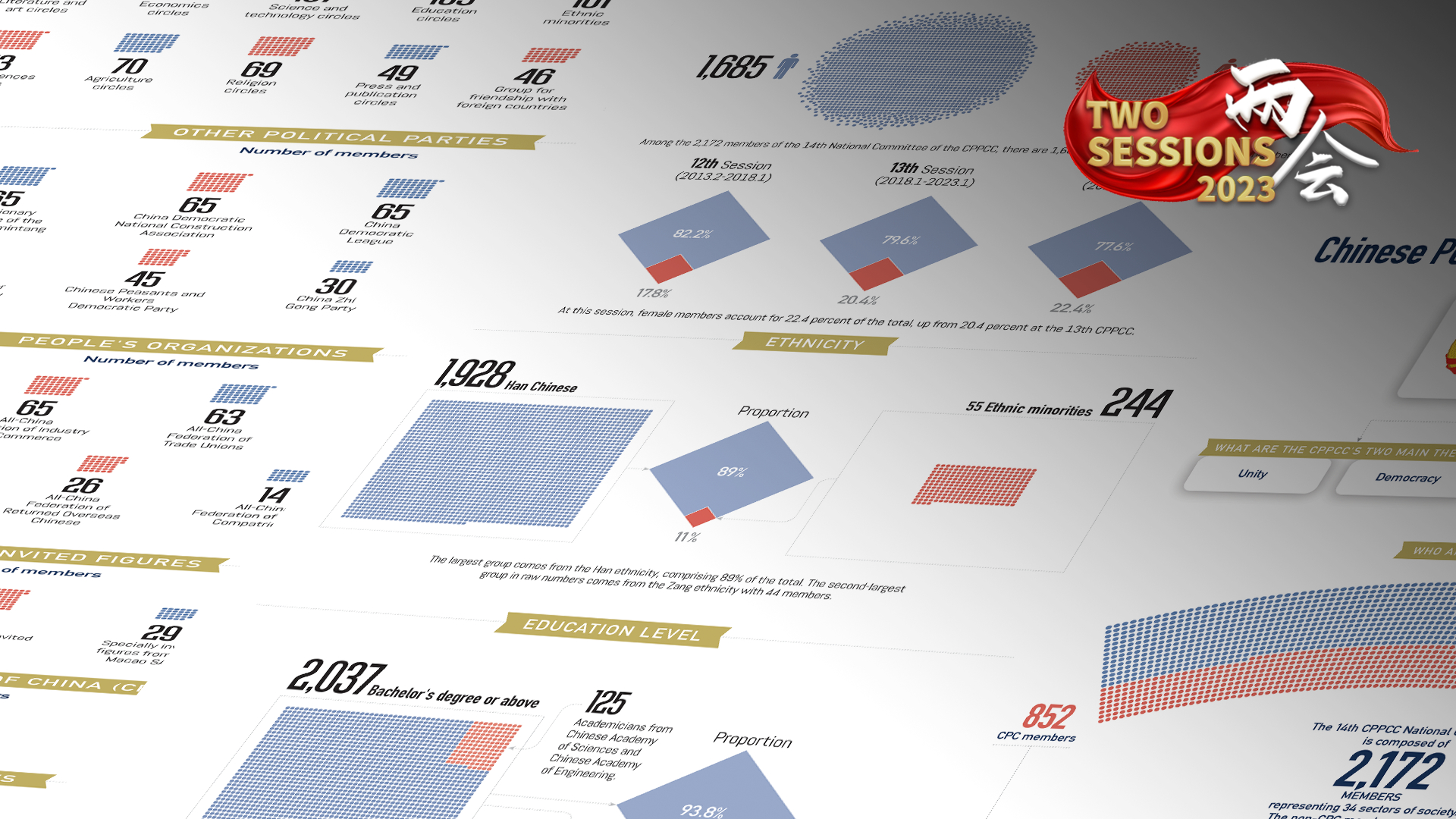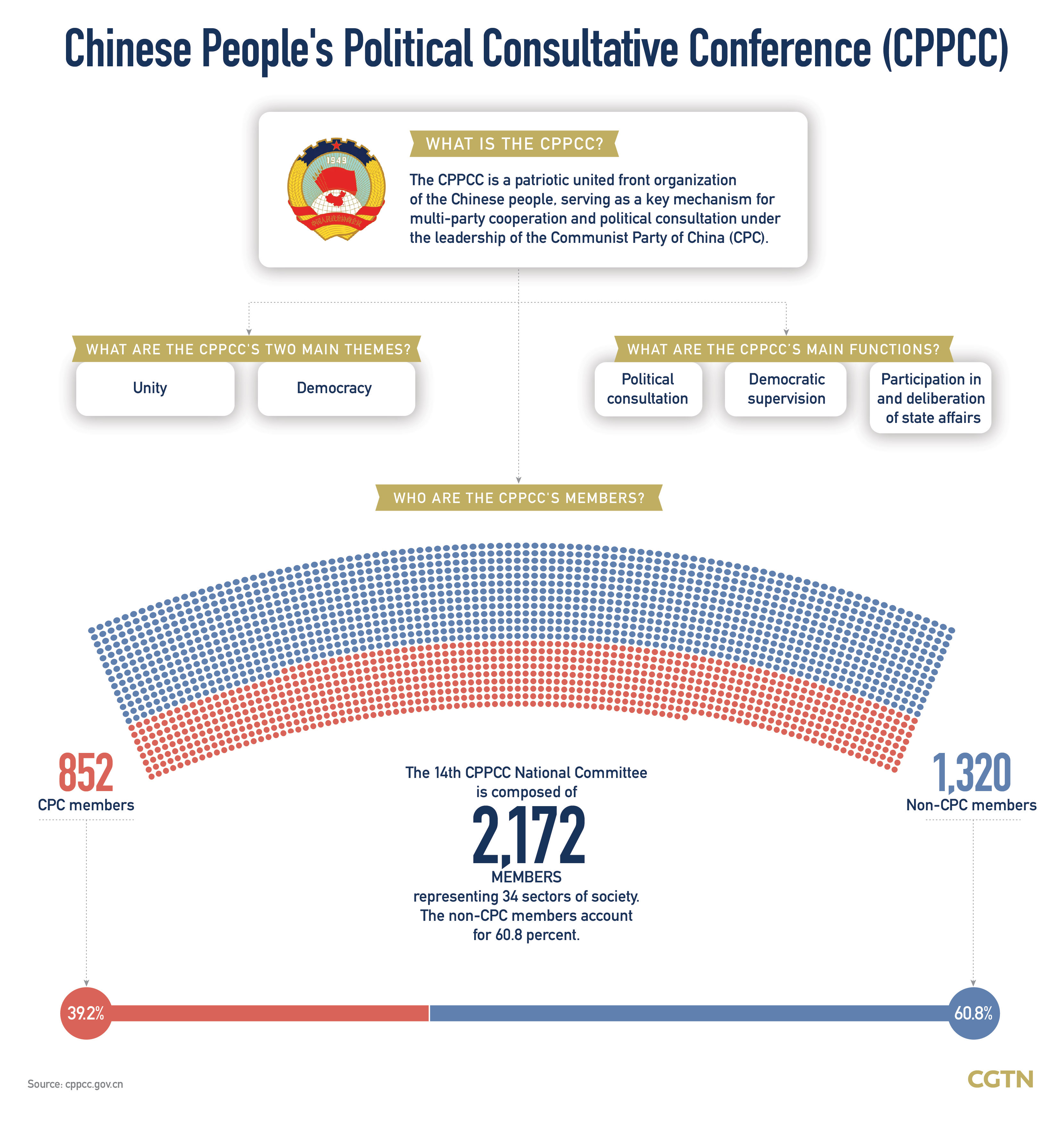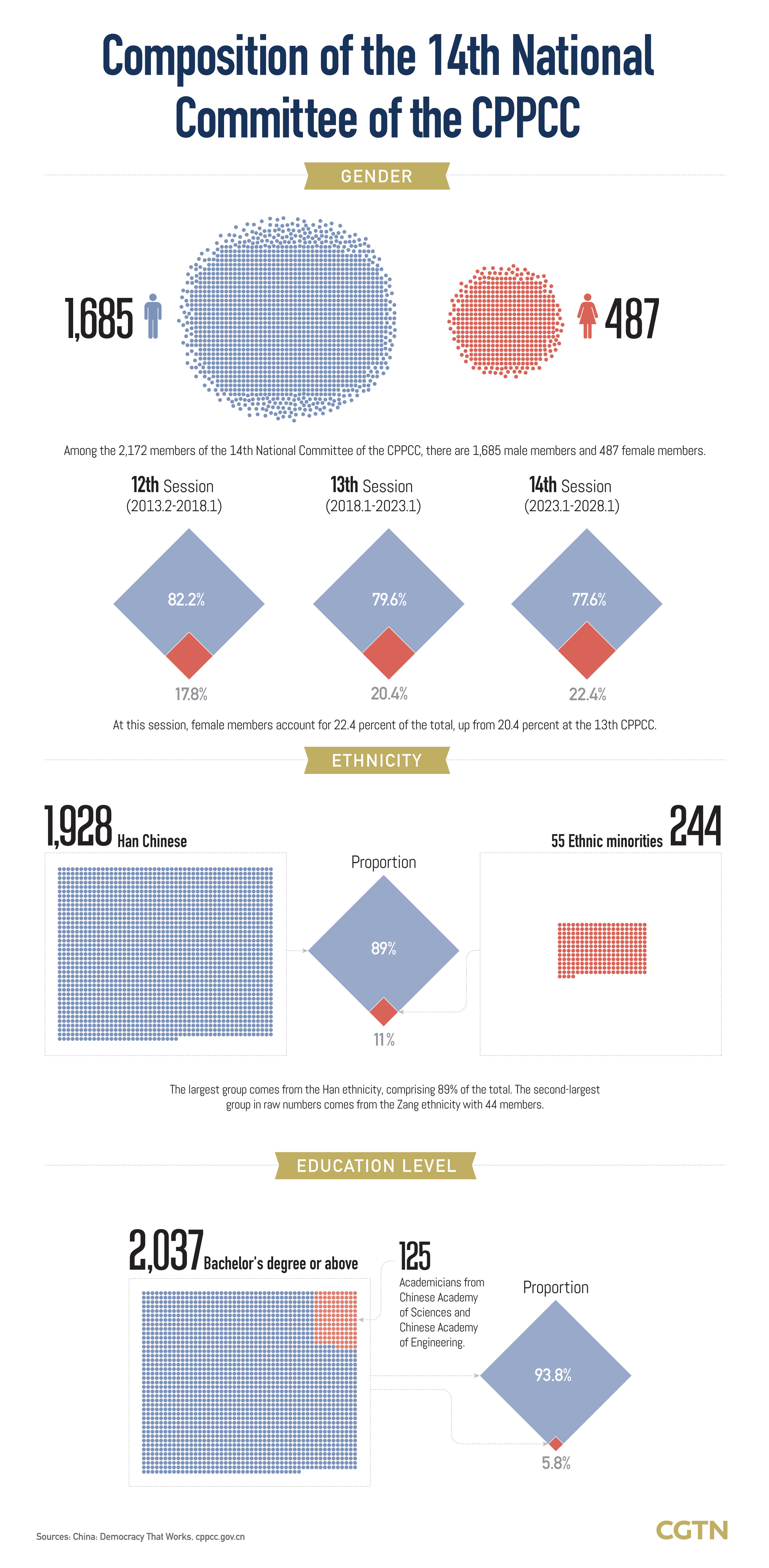
China's highest-level advisory body, the Chinese People's Political Consultative Conference (CPPCC), opened its national session on March 4.
It is one of the "Two Sessions" – an annual event that is critical to China's political system.
Compared with the other session – the National People's Congress (NPC), that exercises state power – the CPPCC is often underestimated by Western observers of China's democratic system.
However, a comprehensive understanding of the system cannot be achieved without considering the distinctiveness of the CPPCC, which is part of the "Chinese characteristics" mentioned in key political documents in the country.
Historically, the CPPCC made contribution to the establishment of the People's Republic of China in 1949 by drafting its original constitution. It also acted as the decision-making body for the new Chinese state before the first NPC convened in 1954. Today, the CPPCC plays an essential role in China's democratic system, providing political consultation, democratic supervision and participation in state affairs.
CPPCC's composition
The CPPCC is deeply embodied into China's political system, from the National Committee that holds one of the Two Sessions, to committees in provincial, city and district levels.
The current National Committee, the 14th five-year term of which started in January, is composed of 2,172 members. A 60.8-percent majority of them are not members of the Communist Party of China (CPC).

The non-CPC members come from the other eight political parties in China, as well as individuals without party affiliation, compatriots from China's Hong Kong, Macao and Taiwan regions, returned overseas Chinese, representatives of various sectors of society, and specially invited individuals.
The diverse composition of CPPCC members is intended to foster unity and democracy by involving as many sectors of society as possible.
It is worth mentioning that the number of female members has increased over the past decade, promoting a better gender balance within the CPPCC membership.

Main functions
Prior to the implementation of major decisions in China, it is customary to engage in consultation with the CPPCC. As such, a tradition of the Two Sessions has been established whereby the CPPCC National Committee convenes one day before the NPC session to ensure that CPPCC members' opinions are duly considered.
Even outside the Two Sessions, CPPCC members at various levels can still hold or participate in consultation meetings with members of the CPC, government officials and other groups. At the national level, a Standing Committee has been established to handle the CPPCC National Committee's day-to-day affairs.
One of the primary functions of CPPCC meetings is to provide advice and recommendations to other state institutions. The institutions must respond within a limited timeframe as mandated by law.
As an example, the Revolutionary Committee of the Chinese Kuomintang (RCCK) has drafted 38 proposals for this year's CPPCC national session, focusing on topics such as high-quality development, pollution reduction and improving living standards. The first proposal on the list pertains to the establishment of a recycling program for school uniforms and textbooks.
With the consultation process, the CPPCC also realizes supervision over China's democratic system and participation in state affairs.
To make sure the consultation works, CPPCC members must conduct in-depth studies of their own sector to check if the policies are properly implemented and collect feedback from the people.
In late 2022, the CPPCC National Committee's science branch conducted a field trip in Shanghai on the evaluation system of sci-tech advancements. In addition to complimenting the latest policies that optimized the evaluation mechanism, members of the branch were frank to point out the shortcomings, calling for more efficiency and fewer loopholes. Moreover, the members identified areas for improvement, including the need for a standardized process for investigating academic misconduct.
The CPPCC can also establish international communications. As the CPPCC members come from different sectors of society, they can communicate with their foreign counterparts to build friendships and cooperate.
All in all, the CPPCC is China's only national political consultative body, an important channel for socialist consultative democracy and a key component of the national governance system.
(Cover picture, infographics by Sun Yiwen)